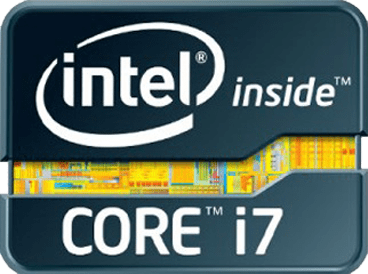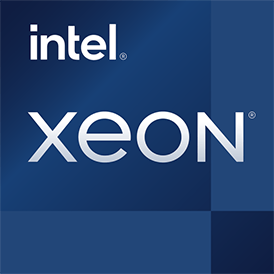
Comparez Intel Xeon E5-1680 v2 VS Intel Core i7-4930K. Which processor delivers superior performance?
In this detailed comparison, we evaluate the specifications and benchmarks of both processors to determine the best choice for your needs. We analyze their core counts, maximum frequencies, and power consumption.
Intel Xeon E5-1680 v2 boasts a maximum frequency of 3.00 GHz GHz. 8 / 16 cores that enhance multitasking capabilities.With a power consumption of 130 W W, it ensures efficient performance.Sorti en Q3/2013, it incorporates the latest technology for optimal efficiency.
Intel Core i7-4930K features a maximum frequency of 3.40 GHz GHz. 6 cores designed for high-performance tasks.Its power consumption is 130 W W, providing a balance of power and efficiency.Launched in Q3/2013, it is built to handle demanding applications.
 Raisons de considérer
Raisons de considérer Plus grand nombre de cœurs
2 Plus de cœurs
Positions communes Intel Xeon E5-1680 v2 CPU dans des benchmarks populaires, pour comparaison avec d'autres modèles.
 Raisons de considérer
Raisons de considérer Place dans le classement général
(sur la base de plusieurs critères de référence)
Vitesse d'horloge plus élevée
Autour de 12% une meilleure vitesse d'horloge
Positions communes Intel Core i7-4930K CPU dans des benchmarks populaires, pour comparaison avec d'autres modèles.
 Intel Xeon E5-1680 v2
Intel Xeon E5-1680 v2

Comprehensive background on the processors being compared, detailing their series, generation, and targeted market segment.
Essential parameters including the number of cores, threads, base and turbo frequencies, and cache size. These metrics provide insight into the processor’s speed—higher values generally indicate better performance.
The integrated graphics (iGPU) do not influence the CPU performance significantly; they serve as a substitute for a dedicated graphics card in the absence of one or are utilized in mobile devices.
This section details the built-in codecs used for encoding and decoding media content, which significantly enhance processing speed and efficiency.
Overview of the types and quantities of RAM supported by Intel Core i7-4930K et Intel Xeon E5-1680 v2. The supported memory frequencies may vary depending on the motherboard configuration.
Analyze the TDP (Thermal Design Power) requirements of Intel Xeon E5-1680 v2 et Intel Core i7-4930K to make an informed decision on the appropriate cooling system. Remember that TDP refers to thermal watts, not electrical watts.
Information on architecture, interfaces, and additional instructions supported by Intel Xeon E5-1680 v2 et Intel Core i7-4930K, including virtual machine technologies and fabrication processes.
By analyzing the results from various benchmarks, you can gain a clearer understanding of the performance differences between Intel Xeon E5-1680 v2 et Intel Core i7-4930K.
Compare the synthetic benchmark scores and make an informed decision on the best processor for your needs!